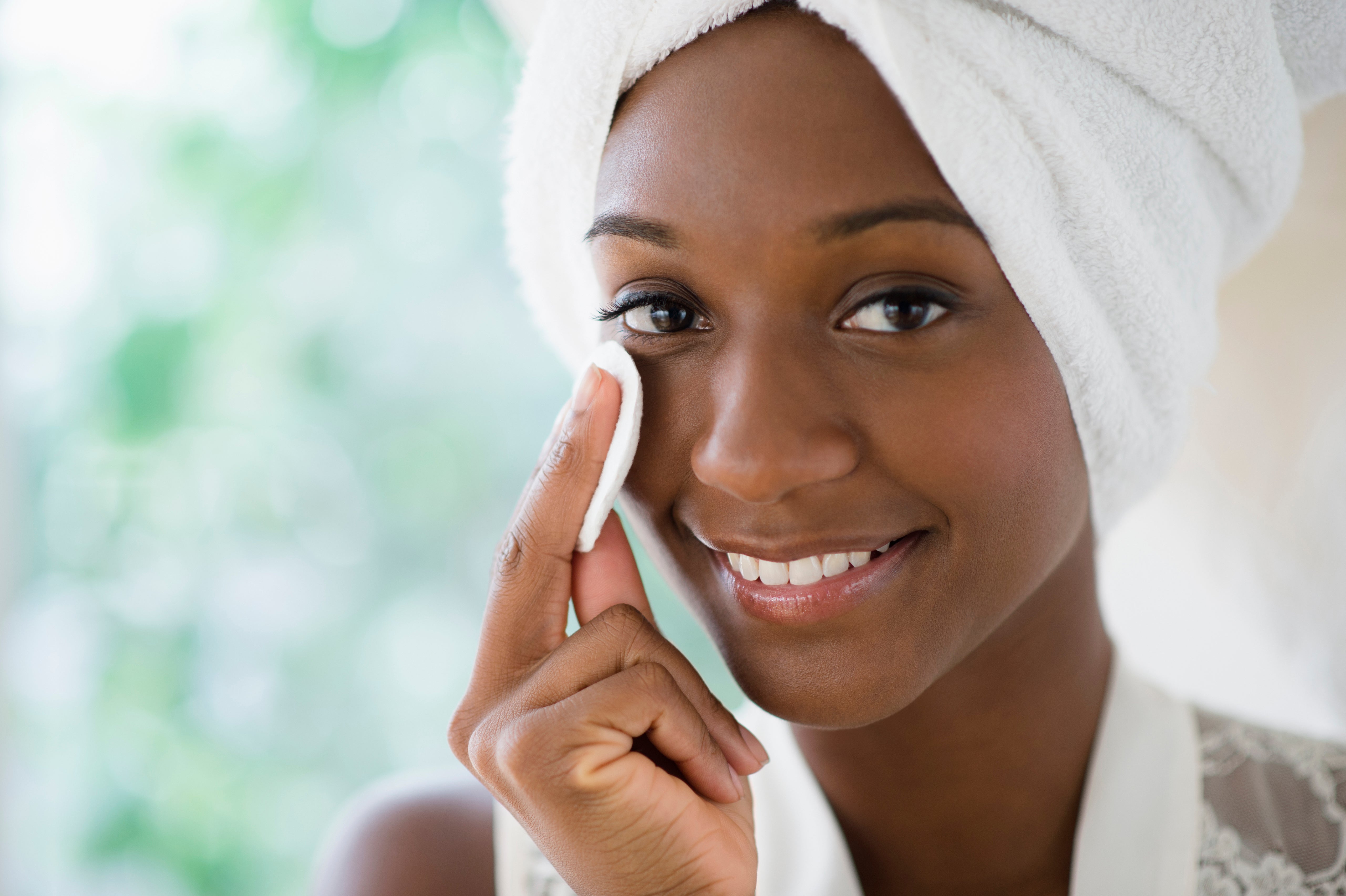
Remember the movie Labyrinth? Dating myself, I know—but that’s exactly what I think of when it comes to skincare.
Navigating the world of moisturizers, toners, serums and every other skin perfector is like getting through one hell of a maze.
It all comes down to which products, out of the millions out there, are actually beneficial to your skin and more importantly, worth the investment.
Let’s start with toner, which is typically used after cleansing. We went to dermatologist Brooke A. Jackson, MD, FAAD to find what it actually does and whether or not we need to incorporate it into our regimen. Take notes!
What are toners?
The short answer is they are liquids, usually water based, that contain ingredients for specific types of skin (acne prone/oily, sensitive /soothing, hydrating).
What purpose do they serve for skin?
Toners are meant to continue the cleansing process of your skin. If your cleanser leaves a film on your skin, then toners may remove the film.
Do you really need them?
Not always. Historically, toners have contained harsh ingredients such as alcohol, witch hazel or other astringents. They became popular with a 3-step kit years ago with cleanser, toner, moisturizer and that has been indoctrinated into skin care regimens.
Not everyone needs one or should use one. These astringent ingredients can be drying to sensitive and easily irritated skin. Patients also get obsessed with the “clean cotton ball” believing they need to use the toner until the cotton ball is clean on their skin, which can often lead to overuse of the product and irritation.
Subscribe to our daily newsletter for the latest in hair, beauty, style and celebrity news.
If you do use a toner, take one pass over your face and toss the cotton ball. Your body continues to produce sebum and if you strip it from your skin, your body will believe that it has not made enough and compensate by making more. This is a real challenge for those with oily skin who tend to love toners for just that reason.
Other toner ingredients have contained fragrance, citrus and essential oils all of which can be irritating to sensitive skin.
Some of the newer toners may contain ingredients such as antioxidants, or other ingredients that can sooth and hydrate the skin.
What ingredients should you look for in a toner?
This depends on the needs of your skin. If you have acne prone, look for salicylic acid or glycol acid. If you skin is drier, try one that is alcohol free, water based (rose water, chamomile) or one that has pantethol (b vitamin.)
Shop four of our favorites below!
For Acne Prone Skin: Murad Clarifying Toner, $24, sephora.com
For Dry Skin: Fresh Rose Floral Toner, $40, sephora.com
For Sensitive Skin: Ole Henriksen Nurture Me Facial Water, $22, sephora.com
For Combination Skin: Origins United State Balancing Tonic, $22, sephora.com